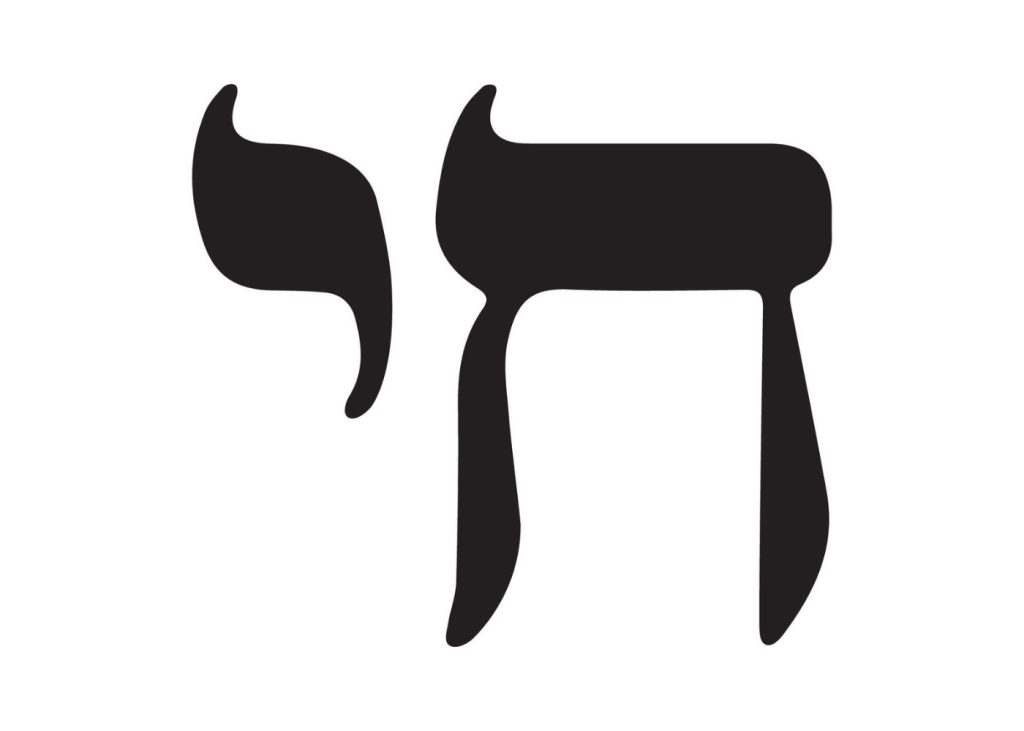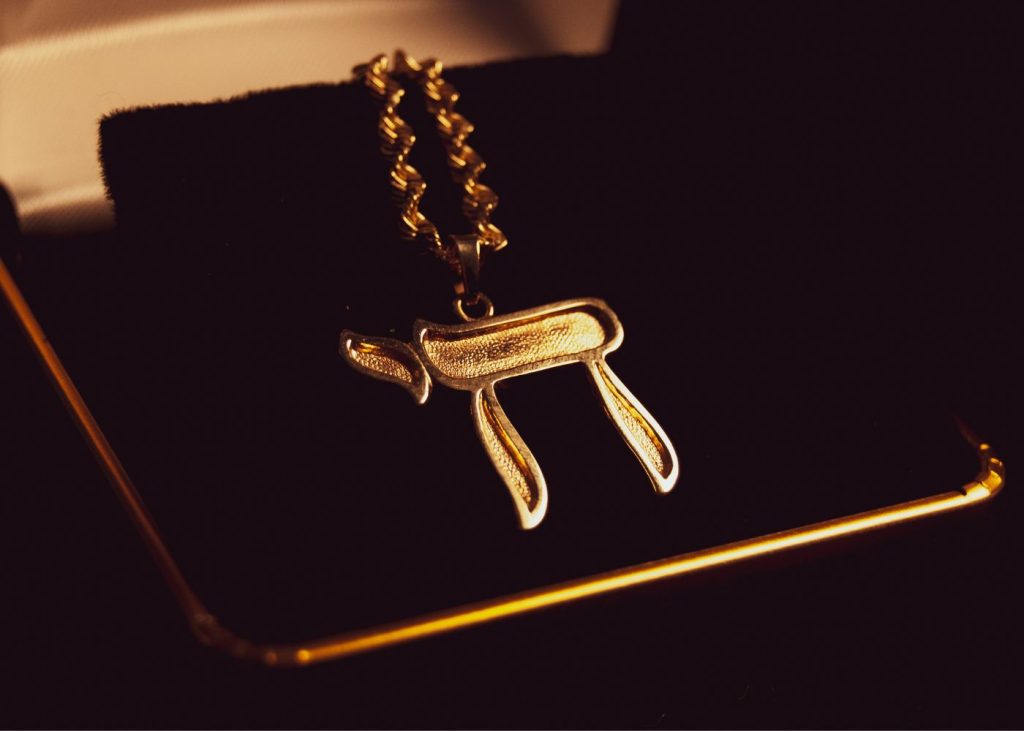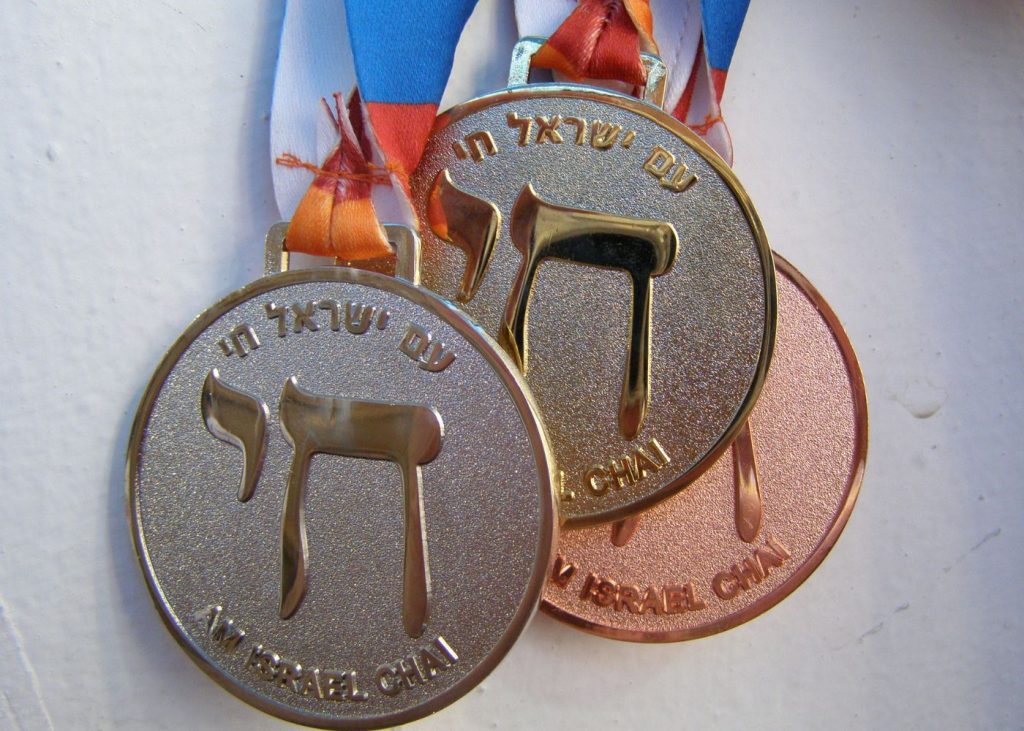Chai is a Hebrew word symbolizing the number 18. It means life, living, or alive. Chai combines Yud (10) and Chet/Het (8). Het-Yud is written as Chai (‘n). 18 or Chai has a tremendous significance in Judaism.
L’Chaim is a Jewish toast meaning to life. It’s used in all happy celebrations like birthdays, weddings, bar mitzvahs, bat mitzvah events, and more—Jews gift money in the multiples of 18 as a sign of good luck and life.

How Do You Pronounce Chai in Hebrew?
Chai is an integral part of Judaism and Jewish culture. The ch sound is pronounced as kh in Hebrew. So Chai is pronounced as Khai. It rhymes with the English high.
The Jewish word Chai is very different from the Indian Chai (which means tea), pronounced using the ‘ch’ sound. However, most Jews use the plural form of Chai. It is called Chaim (חים).
Is Chai a Hebrew Name?
Yes. Chai is a Hebrew name. Jews name their sons Chaim, referring to the plural form of 18. It means to life.
You might recall L’Chaim in the Fiddler on the Roof (1971) movie. The phrase is a part of the Jewish toasting ritual. It is often heard during Friday Shabbat, Yom Kippur, Rosh Hashana, and many gatherings or events.
History and Meaning of the Chai Symbol
The Hebrew letters and symbols represented the Jewish faith and Judaism from ancient times. Chai was associated with Jews only in the 20th century as more people came to know about it.
The Jewish culture gives a lot of importance to life, and the protection of life is important for Jewish people. The Chai symbol is found across Jewish arts, painting, literature, jewelry, etc. It’s printed on sacred objects and worn as pendants and amulets.
Chai Symbol Roots
Records show that the Chai symbol has been traced to medieval Spain. It was found on amulets in the 18th century in Eastern Europe.
Chai is inscribed on the mezuzah, which holds a sacred significance for Jews. Mezuzot (plural) are small decorative cases where the parchments with Jewish sacred texts are stored. The case is hung near doorframes, entrances, or hallways for good luck.
Yud (10) is the smallest letter in Hebrew and is associated with humility. Another meaning of Yud is hand/ arm. Chet (the 8th letter in Hebrew) represents the circumcision ritual performed on the eighth day of a child’s life. Together, the Yud plus the Chet symbolize Chai or the importance of life.
What is a Chai Symbol Pendant?
The Chai symbol is worn as a pendant by many Jews. Jews also wear the Star of David, Hamsa (the hand), etc., as a pendant, bracelet charms, and other jewelry for protection and good luck. You can find Chai pendants in several stores. People also gift a Chai necklace for good luck.

Chai Symbol in Popular Culture
We can find the Hebrew Chai symbol on several items in modern times. It is seen on T-shirts, mugs, paintings, tapestries, and tallits (prayer shawls). Chai adorns Jewish sacred objects and other items people use to add a bit of luck to their lives.
Am Yisrael Chai is a famous Jewish phrase meaning the people of Israel live. It is a survival prayer of Jews and a declaration that Jews have the right to live. The phrase originated in Nazi Germany when Hitler called for the Holocaust of Jews and killed millions.

Chai Symbol Tattoo Meaning
Many people use Hebrew letters for tattoos. Simple yet profound words like joy, peace, God, and life (Chai) are common tattoos. People who want larger tattoos opt for quotes from the Old Testament or Torah (Hebrew Bible).
The Chai tattoo is often seen on the wrists, arms, and back of the beck. Both men and women get Chai tattoos. It is an excellent choice if you want something small, discreet, and beautiful.
Is It Okay to Get a Chai Symbol Tattoo?
Yes. It’s okay to get the Chai symbol tattooed on your body. You must believe in it and respect Jewish symbols, beliefs, and culture.
What Makes 18 a Lucky Number in Judaism?
The number 18 and its multiples are pious for Jews. Gematria is divine mathematics in Jewish tradition. The letters of the Hebrew alphabet correspond to different numbers. For example, the numerical value of Aleph is one, Bet is two, Chet is eight, Yud is ten, and Chai is 18.
Each number is further associated with a sacred concept from Judaism. This practice dates back to Mesopotamia from the 8th century BCE. However, the study of numerical and aleph-bet has begun during the Mishnaic Period (between 10 and 220 CE).
The symbol Chai and the number 18 are also associated with the sacred texts in Kabbalah (Jewish mysticism from the 12th century). It’s also seen in the Bible. 18 is a lucky number in Judaism as it denotes life, being alive, protection of life, and good luck.
Why are Gifts of Money Often Given in Multiples of 18?
Since 18 is the number of life in Jewish culture, Jews believe that gifting money in double Chai (36), triple Chai (54), or other multiples of 18 will bring good luck, good fortune, prosperity, and happiness to the receiver. It symbolizes that the receiver will lead a good and long life on this earth.
Giving money in the multiples of 18 is usually referred to as giving Chai. Many Jews prefer double Chai. 108 is another preferred multiple. This number is also sacred in Hinduism and is known as the Harshad number (giver of joy).
Chai is sacred in Judaica and continues to be significant for Jews. It is a reminder and a symbol of a person’s will to live and protect life. It is a lucky number in Jewish culture. Chai (18) has religious and linguistic importance in Judaism.
If you found this article helpful, check out this post on the symbolism of the Metatron cube.

